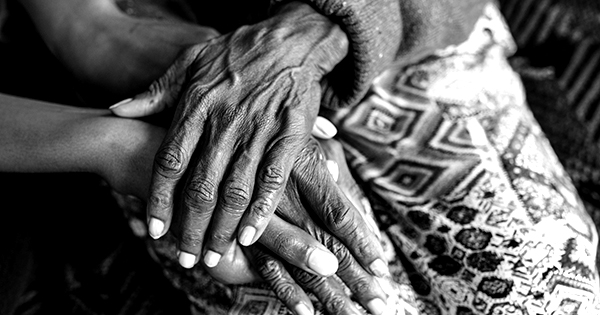For people who can’t afford their medications, some pharmaceutical companies have compassionate care programs that will cover the medication costs, Dr. Sokumbi says. You can also find a database of specialty clinics on the HS Foundation site. And as SELF previously reported, some medical schools offer low-cost or no-cost treatment. “For example, we have a Tuesday evening clinic for dermatology that is set up by the medical students and staffed by our dermatology faculty,” Martina Porter, MD, an assistant professor of dermatology at Harvard Medical School, tells SELF.
4. More advocacy and support
Some people with HS have underlying socioeconomic barriers that prevent them from getting care, Dr. Sokumbi points out. They may, for example, lack the transportation to see a dermatologist if their town doesn’t have one, or their HS may be so severe that they need to register for disability benefits, she says. “Patients with HS have other comorbidities too,” Dr. Sokumbi says. “You go, ‘Well, I have other health problems. I see other docs. I’m still trying to pay the bills over there, but now I have this thing, and I have to come see a dermatologist.’ You are more likely to put that on the back burner.”
If possible, Dr. Okoye advises people to file Family Medical Leave Act (FMLA) paperwork, so that they can keep their jobs if they have to miss work because of their HS flares or because they need to go to the doctor. This is critical because people with HS disproportionately miss work due to flares or appointments, which can lead them to lose their jobs, Dr. Okoye says.
For students who are minors with HS, Dr. Okoye says she speaks with school nurses and fills out paperwork for children who need to complete their schooling from home. She has also written letters for college students who need a single room or single bathroom so they can change their dressings in a private, hygienic manner, she adds.
“I really strongly recommend that patients advocate for the things that they need and, at the same time, try to help them navigate that,” Dr. Okoye says.
5. Representation in clinical trials
Another thing to consider: clinical trials. One study found that only 14% of clinical trial participants were Black, despite, as we mentioned, this group being more likely than anyone else to have the condition. By contrast, 68% of participants were white. This lack of representation doesn’t help in terms of better treatments or understanding of the condition.
Dr. Okoye noted that the Skin of Color Society has been working to bring more people of color into clinical trials, she says. The organization held a diversity in clinical trials summit in 2022.
Of course, it’s not your responsibility to remedy years of racial bias in scientific research. However, if you have HS and do have an interest in participating in a clinical trial (care is generally covered by your insurance or the researchers), the HS Foundations offers information on ones to think about. Dr. Okoye also recommends talking to a trusted health care provider and getting answers to any questions before you sign up. Don’t participate, she says, unless you feel comfortable and all of your concerns have been addressed.
“The companies that make the medications—they know that quite a lot of their patients with HS are of African descent. And so they want patients to be able to say, ‘Aha, this medicine will work for me.’ Or, ‘Aha, this company studied this medicine in people who look like me,’” Dr. Okoye says. “The future is bright.”
Whether you consider a clinical trial or not, it’s important to assemble a health care team you can trust. You may need both surgical and medical management, not just one treatment or the other, Dr. Sokumbi says.
“For all of our HS patients, find a doctor you feel comfortable with,” she says. “If race is important to you, you can also do that. But the most important is a doctor you feel comfortable with who is going to be ready to sort of pick up the baton, to advocate for you, to ensure that you have all that you need on this journey.”
Related:



